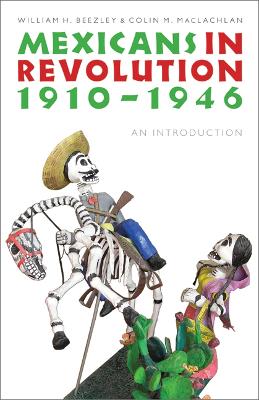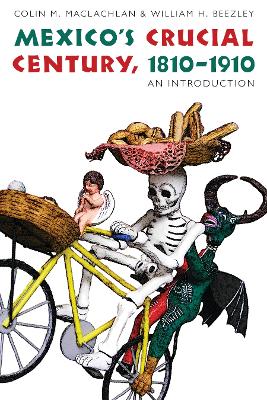The Mexican Experience
2 total works
Mexicans in Revolution, 1910-1946
by William H. Beezley and Colin M. MacLachlan
Published 1 January 2009
On November 20, 1910, Mexicans initiated the world's first popular social revolution. The unbalanced progress of the previous regime triggered violence and mobilized individuals from all classes to demand social and economic justice. In the process they shaped modern Mexico at a cost of two million lives.
This accessible and gripping account guides the reader through the intricacies of the revolution, focusing on the revolutionaries as a group and the implementation of social and political changes. In this volume written for the revolution's centennial, William H. Beezley and Colin M. MacLachlan recount how the revolutionary generation laid the foundation for a better life for all Mexicans.
This accessible and gripping account guides the reader through the intricacies of the revolution, focusing on the revolutionaries as a group and the implementation of social and political changes. In this volume written for the revolution's centennial, William H. Beezley and Colin M. MacLachlan recount how the revolutionary generation laid the foundation for a better life for all Mexicans.
Mexico's Crucial Century, 1810-1910
by William H. Beezley and Colin M. MacLachlan
Published 1 December 2010
After Mexico gained its independence from Spain in 1821, it began the work of forging its identity as an independent nation, a process that would endure throughout the crucial nineteenth century. A weakened Mexico faced American territorial ambitions and economic pressure, and the U.S.-Mexican War threatened the fledgling nation's survival. In 1876 Porfirio Diaz became president of Mexico, bringing political stability to the troubled nation. Although Diaz initiated long-delayed economic development and laid the foundation of modern Mexico, his government was an oligarchy created at the expense of most Mexicans. This accessible account guides the reader through a pivotal time in Mexican history, including such critical episodes as the reign of Santa Anna, the U.S.-Mexican War, and the Porfiriato. Colin M. MacLachlan and William H. Beezley recount how the century between Mexico's independence and the outbreak of the Mexican Revolution had a lasting impact on the course of the nation's history.

